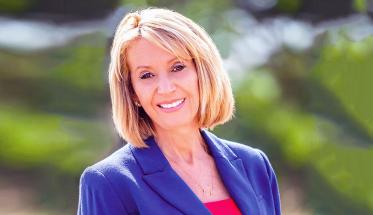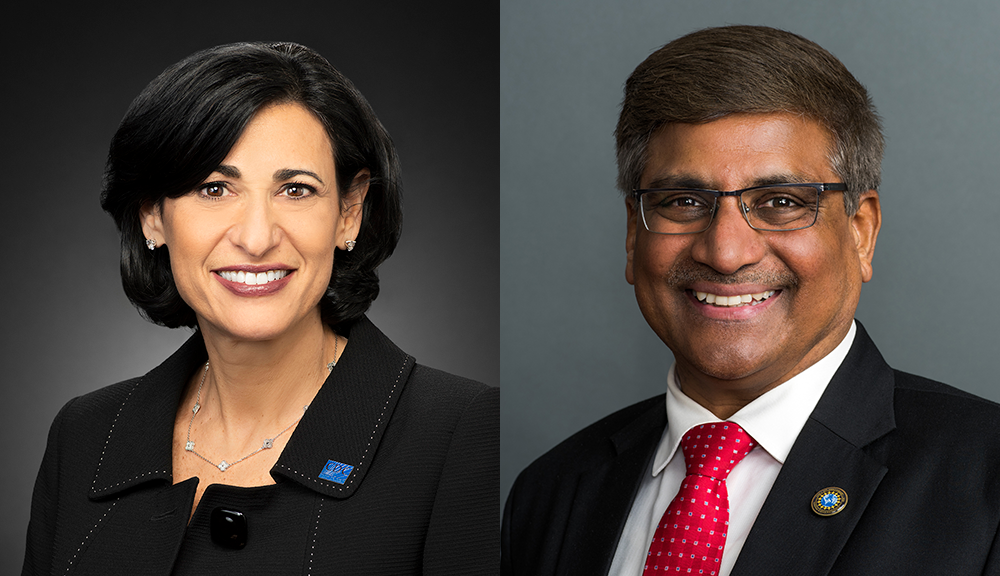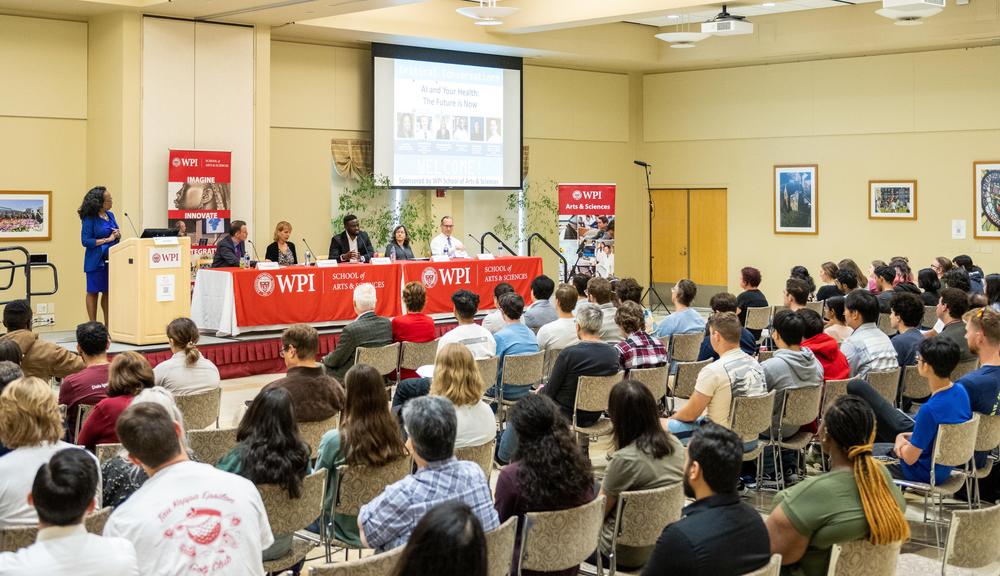Marcia McNutt, president of the National Academy of Sciences, will address the crowd in WPI’s third graduate commencement ceremony. As a geophysicist and a leader in the scientific world, McNutt’s experience ranges from acting as chief or co-chief on multiple deep-sea expeditions to president and CEO of the Monterey Bay Aquarium Research Institute to serving as editor-in-chief of the journal Science. As director of the U.S. Geological Survey, she led a team that helped contain the oil and cap the well in the 2010 Deepwater Horizon oil spill.
McNutt recently answered some questions for The Daily Herd.
Your path to leading the National Academy of Sciences is anything but straightforward. How has all that experience—as a researcher, an administrator, an editor—helped shape the decisions you make in your current role?
The National Academy of Sciences (NAS) is a large organization—more than 1,000 staff members—with the important mission of advising the federal government and other sponsors on issues where science can lead to better decisions. The organization is very complex with different cultures, ranging from physical to life to social sciences. Therefore, my experience as director of the US Geological Survey (USGS), an even larger organization, was excellent preparation for managing the various parts of the organization, both administrative and scientific.
Running the USGS was also good training for relating to our government sponsors. Much of my time as editor-in-chief of Science magazine was devoted to improving science integrity, controlling for conflicts of interest, and increasing the transparency and openness of the scientific enterprise. These are initiatives that I have been able to continue promoting at the NAS. Finally, because the NAS’s members are researchers, I would not have even been elected to this position had I not been a researcher myself, carried credibility with my fellow researchers, and been trusted to understand how their talents can best be used to help the nation make better decisions.
Clearly your work with Deepwater Horizon was life changing. WPI research into more efficient oil burns was also spurred by that disaster. This one example shows how it takes a village to solve some of the world’s most pressing problems. How can today’s emerging scientists learn from similar examples?
While I would never wish a disaster on anyone, there are several aspects of working on disasters that teach valuable lessons. The overarching goal (stopping the disaster) trumps everything else, such as achieving any personal credit, pursuing any professional rivalries, losing concentration for any reason, or even sleeping. You realize that it requires a diverse team with complementary skills to achieve the goal. Being part of that focused team is a thrilling feeling that never leaves you, and you want to carry aspects of those same habits over to other collaborations (albeit with more sleep).
"You realize that [stopping a disaster] requires a diverse team with complementary skills to achieve the goal. Being part of that focused team is a thrilling feeling that never leaves you, and you want to carry aspects of those same habits over to other collaborations." -Marcia McNutt
When you are in a lab or in a remote location for research, it’s easy to focus narrowly on results. How do you always remember the human element of science?
I’m not sure it is possible for a geoscientist to forget the human element of science. In addition to the obvious fact that science is executed by scientists who are people first, everywhere geoscientists look on this planet we see the impact of humans in the atmosphere, the oceans, and the solid surface. Much of the effort of geoscientists is currently directed at understanding how to quantify that impact and lessen negative impacts on important life support systems. Furthermore, geoscientists cannot forget why they are concerned about these issues. It is not about “saving the planet.” Earth has survived meteorite impacts and other catastrophes through billions of years of history.
The reason we care is that it is all about us. The planet will go on, but the real question is how to sustain a hospitable environment for human civilization. In addition, geoscientists are increasingly taking advantage of citizen science to engage the public in helping to monitor the Earth at spatial and temporal scales that previously would have not been achievable.
Women are becoming more prominent in STEM fields and are leading in many STEM industries. What are the challenges women face in rising to the highest ranks in the STEM fields?
I view the problem as sector dependent. The barriers for women’s advancement appear to be lower in government, where women are quickly rising to the top in many agencies. Strong federal (and often state) policies make it possible for women to take time off for children and return to their jobs without missing out on promotions or pay increases.
When I was director of the U.S. Geological Survey, the majority of my leadership team was female, across science and administrative positions, and many of those women were already in those positions or similar positions before I arrived. Women are also thriving in careers in science publishing and at NGOs. On the other hand, I am concerned that tenure remains a disincentive for many talented women to pursue academic career tracks at universities. To earn tenure, these women are faced with having to teach and mentor students, raise funding and complete world-class research, and perform service to science and society, all just when time is running out to bear children. I have seen data suggesting that many women instead prefer non-tenure-track teaching or research positions.
The sector that seems most difficult for women is industry. The statistics of women who have risen to the top in science- and engineering-dependent industries are very troubling. I have not seen firm data on the reason for the low representation of women, but would not be surprised if the problem is the culture of industry that is not welcoming.
What about WPI made you choose to accept to deliver the Commencement address?
Easy question to answer. It was your president, Laurie Leshin. Count me as one of her fans.



